Description
The questions and answers cover a wide variety of questions relating to the physical training process, pitched at levels from newcomer to advanced. The true student of Ian King’s teachings and those who want a ready reference in one book will find this an invaluable source of quality information! Learn from the coach and innovator who has changed the way the world trains!
So, what does this new 2nd Edition Ask the Master book include?
The short answer is 302 pages, 112,000 words, and 37 chapters! The long answer is to check out the table of contents below:
Chapter 1 – Age Groups
Chapter 2 – Assessment
Chapter 3 – Body Composition
Chapter 4 – Body Parts
Chapter 5 – Body Types
Chapter 6 – Book of Muscle
Chapter 7 – Business Development
Chapter 8 – Endurance/Energy System Training
Chapter 9 – Environment
Chapter 10 – Equipment
Chapter 11 – Exercise Adherence
Chapter 12 – Exercises
Chapter 13 – Fiber Type
Chapter 14 – Flexibility Training
Chapter 15 – Gender
Chapter 16 – Get Buffed!™ Training Programs
Chapter 17 – Hypertrophy Training
Chapter 18 – Injury Prevention, Management & Rehabilitation
Chapter 19 – Integrity
Chapter 20 – Men’s Health Training Program
Chapter 21 – Nutrition
Chapter 22 – Nutritional Supplements
Chapter 23 – Occupational Specific Training
Chapter 24 – Periodization and Integration of Training
Chapter 25 – Personal education
Chapter 26 – Posture
Chapter 27 – Professional Development
Chapter 28 – Program Design
Chapter 29 – Recovery and Overtraining
Chapter 30 – Specific Sports Training
Chapter 31 – Speed Training
Chapter 32 – Spotting
Chapter 33 – Strength Training
Chapter 34 – T-mag Training Programs
Chapter 35 – Training Age
Chapter 36 – Training History
Chapter 37 – Training Methods – Strength Training
What others have said
Ian thank you for the information and experiences. From what I’ve seen I’ll agree with the athletes, that you truly are the training “Master”! Your approach to training based on sound principles and a training process are second to none and will no doubt become more and more popular as time goes on.-–Sean
I want to thank Ian King for all the great knowledge he spreads and congratulate him on his work. I am also in the field of strength and conditioning and, at this beginning stage in my career, is great to have found a role model that sets high standards for me to try to work towards. Thanks!-–John
I’ve never read anything like what you have written. Every question about training that I ever wanted to know and more I’ve learned from you. You have made such a powerful impact on me. My attitude is so positive and my life, despite all the adversity I’ve experienced, is better than it has ever been and just keeps getting better. I just wanted to let you know that what you do for people and what you’ve done for me is really special and please keep it up!—Ted
I have a desire to learn from the best! I profoundly believe in your training systems. I can without a doubt, say your methods are the best I have ever used. Observing the client, seeing the looks on their faces, and witnessing their amazement, in how effective that particular method is, makes me shake my head and think how brilliant you are. I have learned more from reading your published materials than I have in some of my formal educational classes.–Greg
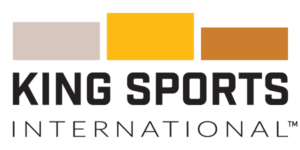
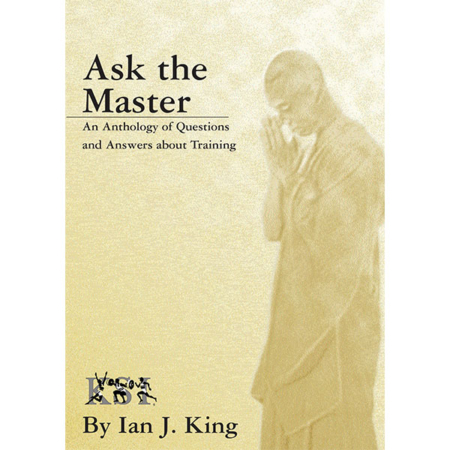
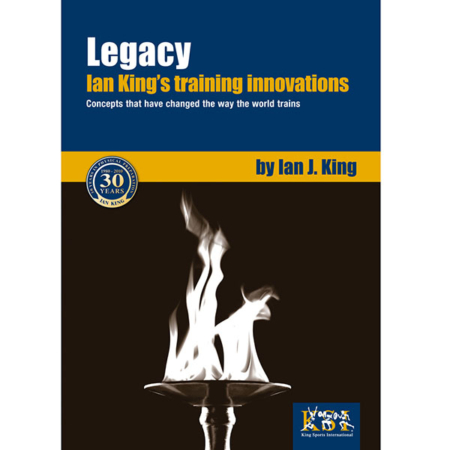
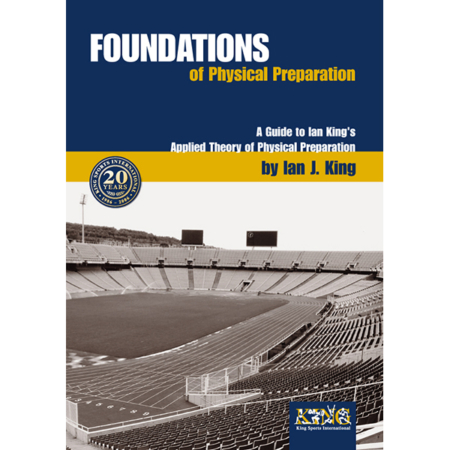
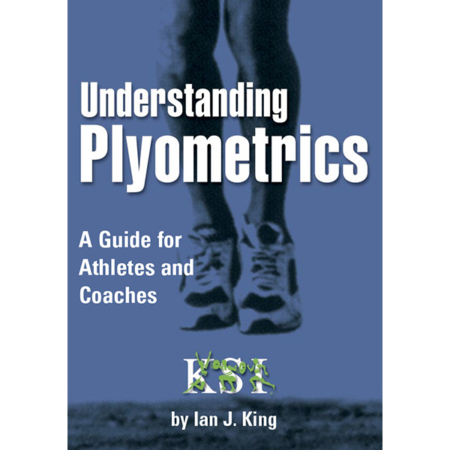



George Stavrou (verified owner) –
There is a tremendous amount of wisdom in this compilation of Ian King’s writings based on his decades of training athletes in a variety of disciplines.
Coach King covers 30+ topics in a variety of areas
Some of the topics include
– Body composition
– Body Parts
– Flexibility training
– Integrity
– Strength Training
Unless you have been following the career of Coach Ian King, it is a challenge to give potentially NEW readers an understanding of what he covers in this incredible anthology and how in depth he goes into each topic AND how much further he CAN go in any of the 30+ topics if space was NOT an issue in a single digital book.
I will give some brief yet powerful examples from each of the topics I mentioned above and hopefully it does some justice to who many, myself included, refer to as ‘The Master’
‘Q: Do you assess the body fat levels of your athletes? If so, what method do you use? Any unusual tips?
‘A: Not always. I find body fat to be over-rated…For example, if I use the sum of 8 sites (which I often do use), what evidence is there to suggest that the performance enhancement, if any from dropping from 90 mm to 80 mm justifies the time or focus need to achieve this?’
Q: Abdominals
What’s your take on Ab Training? Do you go for the heavy, low rep approach or the light, high rep approach? Which exercises are the best and how often should one train abdominals?
A: For the abdominals, I like to do some ab work at least four-five out of seven days, but don’t train the same muscle group two days in a row. E.g. lower abs one day, upper abs the next, rest day, repeat, etc. I break the abdominals into six groups and in higher volume periods I include an exercise for each group. The six groups include:
1. Lower
2. Upper
3. Rotation
4. Lateral flexion
5. Integrated
6. Co-contraction glut/abdomen
…’One key thing I do (and perhaps a little different to what you may be used to!) is I spend a substantial amount of program time doing abdominals at THE START OF THE WORKOUT! Yes, that’s right, before any other exercises. I know what you are going to say – how many times have I heard it? Your granddaddy told your daddy and he told you – doing abdominals first will cause fatigue in the support muscles, which is evil blah, blah, blah. Before you reel out the rhetoric, give it a go. Absolutely bash your abdominals and then squat – then come to your own conclusions. It’s okay to have a different opinion to the rest of the well-trained monkeys!
Flexibility Training
Q: Why do you recommend stretching before a workout? Isn’t that considered “bad” these days?’
A: ‘You are right on that – it’s bad! The interesting thing that most people give it a go (in the way I recommend) actually rave about how good it is! If you did a long static stretch and tested muscle strength immediately you may find a decrement in power. But what about 5-20 mins. later and after a number of warm-up sets? If you want to train like the conservative majority, assume my stretching recommendations are off-track and ignore them. But if you want an edge over someone else, get out there and give it a go. At the end of the day it doesn’t matter what I think – more importantly how did you find it after experiencing it!? If you let mainstream science dictate your behavior you may have only a few years ago believed that you needed more than the RDA (Recommended Dietary Allowances)…that you get all your vitamin and mineral needs from fruits and vegetables…and that full range squats were bad…
Integrity
Giving Credit
Blue Collar Muscle Interview
Hi Ian!. My name is John Meadows. I co-host a radio show (podcast) called Blue Collar Muscle. I think it’s awesome when people give credit to those they learned from along the way. We recently had Dr. Eric Serrano on the show and he gave you a lot of credit (time under tension discussion) . I just wanted you to know that! Best regards, John…
Thanks John. Great to know. Eric is one of those rare people in this industry with integrity.
Did xxx pretty much rip you off from start to finish? The material seems very similar with some names changed…
Glad to hear you found value in the GB Book! At the time of publishing the contents and concepts rocked the training world! Let’s say I only publish original material, and if It is not, I reference and credit professionally and accurate. Does that answer your questions? I would be happy to be more expansive in person. There is much we can talk about…
Strength training
Abdominals first in the workout?
Q: There seems to be an accepted “rule” not to train the abdominals first in the workout. You’ve said to train abdominals first if they’re your weak link. So, what’s the deal? Will hitting abdominals first in your workout make you less stable for squatting or other exercises?
A: …Before I get more specific, let me ask – generally speaking, throughout the whole population, which would you think is the weakest muscle? I would say the abdomen, and if you accept the link between weak abdominals and the incidence of lower back problems, you would know we are talking about one of the greatest and most debilitating injuries in our society. The cost to the economy of lost work hours, and rehab costs, to lower back would be phenomenal.
Yet any person entering strength training to improve their bodies for whatever reason is exposed to the approach of doing abdominals last. This is abdominal suicide!!!
Now for the big one – that fatigued abdominals make you less stable in squatting! Again let me ask what is the role of the abdominal during squatting. Let’s see…the distance between the sternum and the hip is shortening due to trunk flexion…so maybe the abdominals are contracting concentrically…or maybe they are not…maybe this trunk flexion is being controlled by the back extensor, gluteals and hamstring…interesting.
To summarize, I’ve only scratched the surface on the tremendous amount of info. and wisdom In ‘Ask The Master’. There are many more examples for not just personal trainers and coaches but also for the lay-person that is interested in learning from one of the true innovators in this industry!
‘Ask The Master’ by Ian J. King gets my HIGHEST RECOMMENDATION! 10/10!
George (Toronto, Canada)